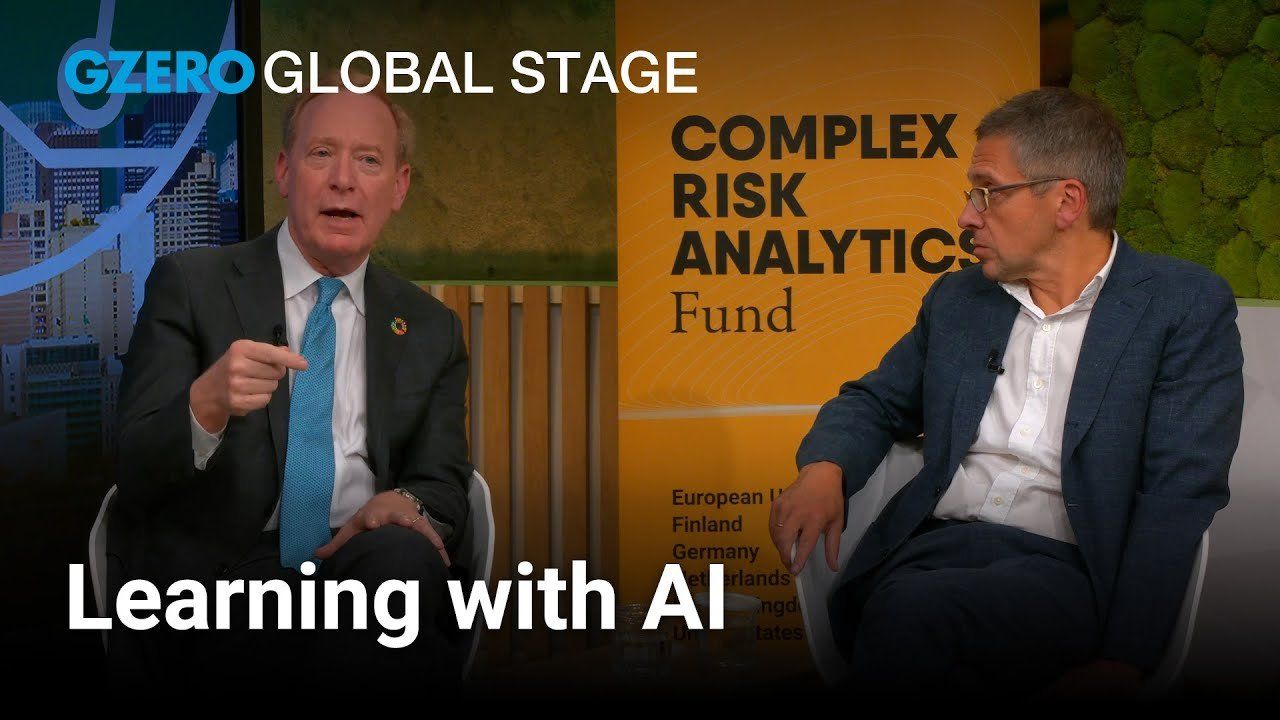
- YouTube
AI’s impact on healthcare is expected to outpace education, according to Microsoft’s Brad Smith. AI is revolutionizing drug discovery and precision medicine, flowing naturally to doctors. But education evolves more slowly—tools alone aren't enough. It requires buy-in from teachers, students, and families. Smith emphasizes that while technology offers potential, true progress happens when people are brought along together on the journey, ensuring AI serves society.
Smith spoke during GZERO’s Global Stage livestream, “Live from the United Nations: Securing our Digital Future,” an event produced in partnership between the Complex Risk Analytics Fund, or CRAF’d, and GZERO Media’s Global Stage series, sponsored by Microsoft.